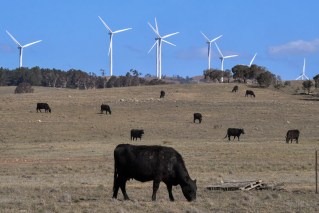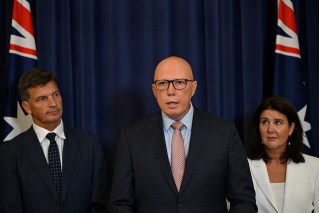The Stats Guy: What are the core Australian values?


Australians value friendship, camaraderie, and helping one another, writes Simon Kuestenmacher. Photo: TND/Getty
Are we on the right track as a nation? How do we even tackle such an issue?
We must ignore things that are outside of our control and test if our collective actions roughly reflect our collective values.
This raises the incredibly difficult question of what are our national values? I don’t pretend to offer a complete list here, but this is my best effort to pick the top three Australian core values – feel free to add your top three Australian core values when commenting on or sharing this column online.
Values obviously vary from one person to the next and our collective values transform somewhat as a new generation comes of age but there is a set of values that are deeply embedded in the collective Australian psyche. As a migration nation, we must constantly retell our national myths to ensure folks fresh off the jumbo jet understand how Australia works.
Australians value friendship, camaraderie, and helping one another.
Mateship
The concept of mateship emphasises loyalty, mutual support, and a willingness to lend a hand to those in need.
In the face of imminent danger, Australians predictably show their best side. Inspector Amy Scott was just the most recent example. Take a look at any news story about floods and you will see people in tinnies heroically helping their local community.
Countless volunteer firefighters across the country, ordinary people if I may add, risk their lives to protect their communities. Let’s not forget about the famous mateship between diggers or the camaraderie in local footy and netball clubs.
Australian history is littered with impressive examples of mateship.
I’d say that our traditionally high volunteering rates are a reflection of this willingness to help each other out. Volunteering rates dropped dramatically during the pandemic. We didn’t turn into a heartless bunch, rather the drop was driven by Covid restrictions limiting the number of volunteering opportunities available.
Since restrictions are a thing of the past, this shouldn’t concern us all that much, right? Well, true, if it wasn’t for those pesky sociologists and their very useful theory of spillover.
Spillover theory insists that a person’s attitudes, emotions, skills, and behaviours in one domain flow into another domain and vice versa – this applies to positive and negative behaviours alike.
If we volunteer, we think of ourselves as the type of person that lends a helping hand. When asked to donate a few bucks to a good cause we are more likely to do so if we currently view ourselves as volunteers.
Take the opportunity to volunteer away from us, and we don’t get the chance to think of ourselves as volunteers. Consequently, we become less likely to give a few bucks to a good cause – our behaviour has spilled over, so to speak.
Add a few other societal trends like the rising cost of living, the increased geographical segregation based on wealth, a loss of faith and national pride, and the concept of mateship gets weakened a bit.
If we constantly feel shortchanged, if we don’t feel we live in the lucky country, we become less generous. This makes us collectively a less desirable place to be. We are very much not living in a dystopian hellscape, but the trend is pointing in the wrong direction.
Fairness
Which brings us to our next Australian core value: Fairness.
Australians still believe in the principle of fairness and equal opportunity. We value egalitarianism, want everyone treated with respect and given a fair go.
I’d argue that our sense of fairness has turned daily discussion about the housing crisis into simple expressions of outrage. There is an almost universal moral outrage about unaffordable rents, a shortage of houses, and rising interest rates. “It just ain’t right.”
I think our sense of what is and what isn’t fair is still intact. We collectively sense that someone working a 40+ hour week must be able to afford a roof over their head and fill their shopping basket without worrying about the cost of every item.
It is this sense of fairness, the collective intuition of what is and isn’t right that keeps me optimistic about the future of Australia.
Resilience
Let me close this column with the third and last core value of today.
Australians have a history of overcoming challenges, including harsh environments, natural disasters, uphill battles, and economic fluctuations.
As a result, resilience truly is a core Australian value.
Australians always display a can-do attitude, a willingness to adapt, and the ability to bounce back from adversity. We will tackle the current crisis eventually. Don’t bet against the Australian spirit.
Demographer Simon Kuestenmacher is a co-founder of The Demographics Group. His columns, media commentary and public speaking focus on current socio-demographic trends and how these impact Australia. His latest book aims to awaken the love of maps and data in young readers. Follow Simon on Twitter (X), Facebook, LinkedIn for daily data insights in short format.








